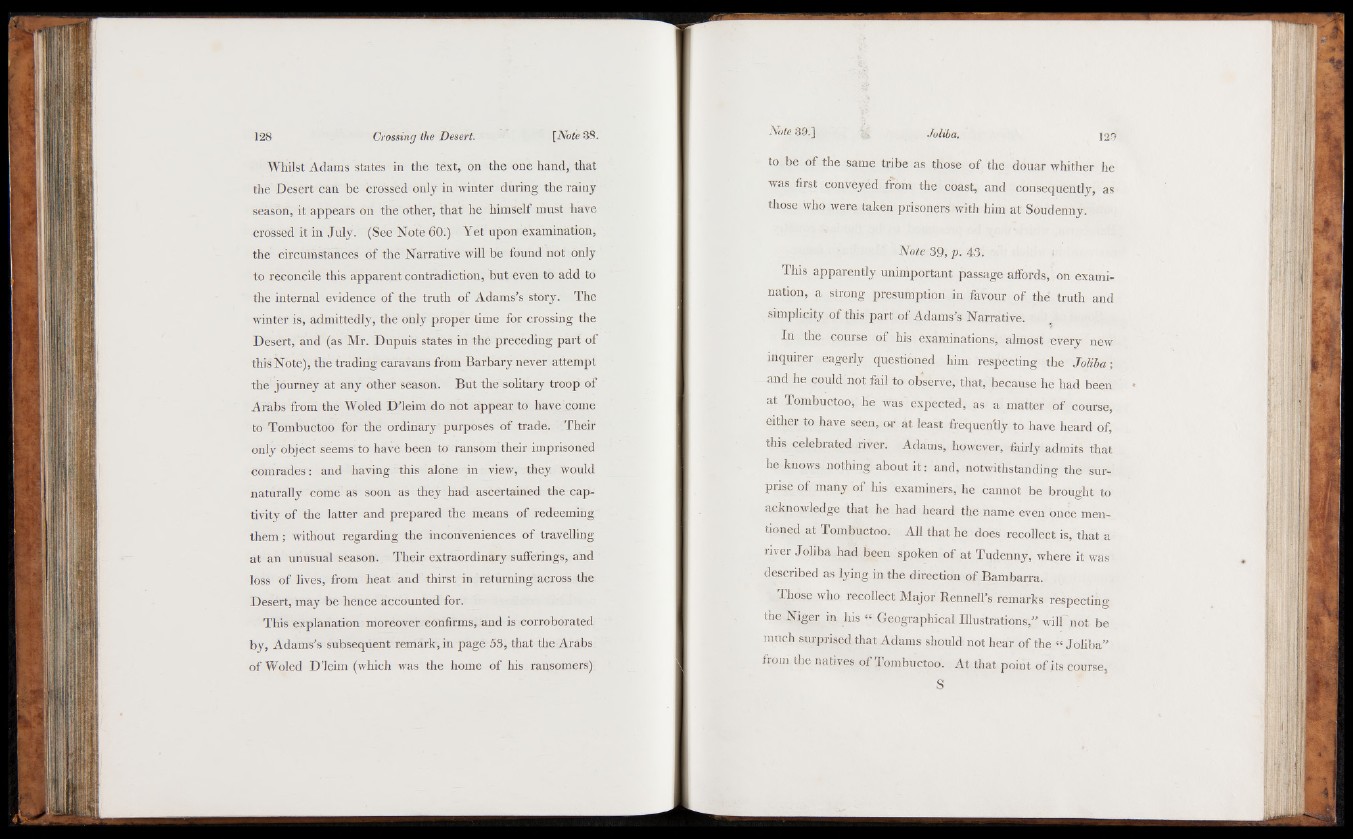
128 Crossing the Desert. [Noie 38.
Whilst Adams states in the text, on the one hand, that
the Desert can be crossed only in winter during the rainy
season, it appears on the other, that he himself must have
crossed it in July. (See Note 60.) Yet upon examination,
the circumstances of the Narrative will be found not only
to reconcile this apparent contradiction, but even to add to
the internal evidence of the truth of Adams’s story. The
winter is, admittedly, the only proper time for crossing the
Desert, and (as Mr. Dupuis states in the preceding part of
this Note), the trading caravans from Barbary never attempt
the journey at any other season. But the solitary troop of
Arabs from the Woled D’leim do not appear to have come
to Tombuctoo for the ordinary purposes of trade. Their
only object seems to have been to ransom their imprisoned
comrades: and having this alone in view, they would
naturally come as soon as they had ascertained the captivity
of the latter and prepared the means of redeeming
them; without regarding the inconveniences of travelling
at an unusual season. Their extraordinary sufferings, and
loss of lives, from heat and thirst in returning across the
Desert, may be hence accounted for.
This explanation moreover confirms, and is corroborated
by, Adams’s subsequent remark, in page 53, that the Arabs
of Woled D’leim (which was the home of his ransomers)
Note 39.] Joliba. 12-9
to be of the same tribe as those of the douar whither he
was first conveyed from the coast, and consequently, as
those who were taken prisoners with him at Soudenny.
Note 39, p. 43. ( <
This apparently unimportant passage affords, on examination,
a strong presumption in favour of the truth and
simplicity of this part of Adams’s Narrative. f
In the course of his examinations, almost every new
inquirer eagerly questioned him respecting the Joliba-,
and he could not fail to observe, that, because he had been
at Tombuctoo, he was expected, as a matter of course,
either to have seen, or at least frequently to have heard of,
this celebrated river. Adams, however, fairly admits that
he knows nothing about it: and, notwithstanding the surprise
of many of his examiners, he cannot be brought to
acknowledge that he had heard the name even once mentioned
at Tombuctoo. All that he does recollect is, that a
liver Joliba had been spoken of at Tudenny, where it was
described as lying in the direction of Bambarra.
Those who recollect Major Rennell’s remarks respecting
the Niger in his “ Geographical Illustrations,” will not be
much surprised that Adams should not hear of the “ Joliba”
from the natives of Tombuctoo. At that point of its course,
S